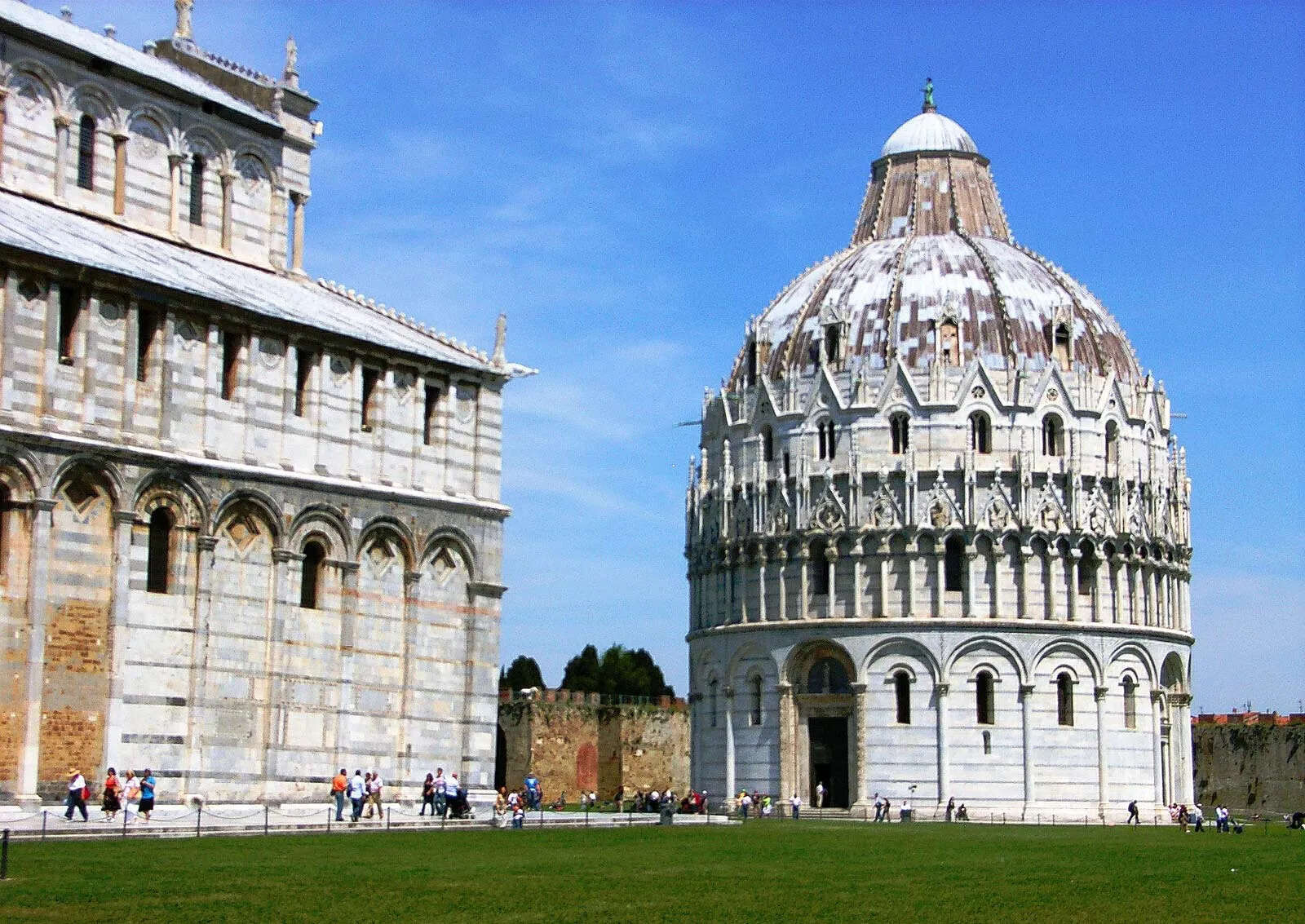
Democracy, a system of government that empowers the people to participate in decision-making processes, is one of the most celebrated and debated forms of governance. The concept traces its roots back to ancient Greece, but has evolved over centuries to become a cornerstone of many modern societies.
In this article, we will delve into 20 fascinating facts about democracy that shed light on its historical significance, implementation around the world, and the challenges it faces in the present day. From the origins of democracy to the different types of democratic systems, from the benefits it offers to the criticisms it attracts, we will explore the intricacies of this complex and constantly evolving idea.
So, whether you consider yourself a political aficionado or simply have a curious mind, get ready to expand your knowledge and gain a deeper understanding of the principles and realities of democracy.
Key Takeaways:
- Democracy empowers people to make decisions and protects their rights. It promotes inclusivity, accountability, and peaceful transitions of power, shaping a better future for all.
- Active citizen participation is vital for democracy to thrive. It encourages diverse representation, protects minority rights, and fosters economic prosperity and stability.
The concept of democracy dates back to ancient Greece.
Democracy, derived from the Greek words “demos” and “kratos,” meaning “people” and “rule,” respectively, originated in Athens around the 5th century BC. This political system emphasized the participation of citizens in governance.
Democracy promotes individual freedoms and human rights.
One of the fundamental principles of democracy is safeguarding the rights and liberties of individuals. It ensures the freedom of speech, assembly, religion, and the right to vote, empowering citizens to actively engage in shaping their society.
The United States is considered a representative democracy.
The American system of government, known as a representative democracy or a republic, involves electing representatives to make decisions on behalf of the people. This intricate system includes checks and balances to prevent the concentration of power.
Democracy encourages peaceful transitions of power.
One of the greatest strengths of democracy is its ability to peacefully transfer power from one leader or party to another through regular elections. This ensures stability and prevents the consolidation of power in the hands of a few.
Democracy promotes economic prosperity.
Studies have shown that countries with democratic systems tend to have stronger economies. The principles of transparency, accountability, and fair competition foster an environment conducive to innovation, investment, and economic growth.
Democracy allows for diverse and inclusive representation.
A democratic society recognizes the importance of diverse voices and values representation from all segments of the population. This includes people from different ethnicities, religions, genders, and socio-economic backgrounds.
Civic education plays a crucial role in strengthening democracy.
Democracy requires an informed and engaged citizenry. Civic education promotes awareness of democratic values, institutions, and processes, empowering individuals to actively participate in politics and make informed decisions.
Universal suffrage is a cornerstone of democratic societies.
Democracy enshrines the principle of universal suffrage, ensuring that all adult citizens have the right to vote in free and fair elections. This allows for the equal expression of political will and fosters inclusive decision-making.
Democratic governments are accountable to the people.
Unlike autocratic regimes, democratic governments are accountable to the people. Through regular elections, citizens have the power to hold their leaders accountable for their actions, ensuring transparency and reducing corruption.
Democracy allows for peaceful resolution of conflicts.
By providing channels for peaceful dialogue, negotiation, and compromise, democracy offers a framework to address societal conflicts without resorting to violence. This promotes social cohesion and stability.
Citizen activism is vital for the functioning of democracy.
Active citizen participation beyond voting is essential for the vitality of democracy. Activism, such as peaceful protests, advocacy, and engagement with elected representatives, allows citizens to voice their concerns and influence policy decisions.
Democracy fosters the protection of minority rights.
In democratic societies, minority rights are safeguarded, ensuring that the interests and well-being of minority groups are protected. This creates a more inclusive society where every voice is valued and respected.
Democracy promotes cultural and intellectual development.
The freedom of expression and diversity of perspectives in a democratic society encourage cultural and intellectual growth. Creativity, critical thinking, and innovation flourish when individuals feel empowered to share their ideas and opinions.
Democracy thrives on an independent judiciary.
An independent judiciary is vital for upholding the rule of law and ensuring the fairness and impartiality of legal decisions. This separation of powers is a crucial aspect of democratic governance.
Democracy allows for peaceful political transitions.
Through regular elections, democratic societies can undergo peaceful political transitions as power shifts from one political party or leader to another, providing stability and continuity.
Democracy encourages citizen engagement in decision-making processes.
Democracy involves the active participation of citizens in decision-making processes, whether through voting, public consultations, or involvement in civil society organizations. This engagement strengthens democratic institutions and promotes inclusivity.
Democracy facilitates the protection of environmental rights.
Within a democratic framework, safeguarding the environment and promoting sustainability can become key priorities. Citizens and advocacy groups can actively push for policies that ensure the protection of natural resources and the health of the planet.
Democracy allows for a peaceful exchange of ideas and viewpoints.
Freedom of speech and a robust public discourse are essential components of democracy. This enables individuals to express their opinions, challenge the status quo, and engage in respectful debates, contributing to societal progress.
Democracy promotes transparency and accountability.
The principles of transparency and accountability are integral to democratic governance. Open access to information, public scrutiny, and mechanisms for holding leaders accountable help prevent corruption and abuse of power.
Democracy requires active participation from all citizens.
For democracy to thrive, it is crucial that all citizens actively engage in the democratic process. This includes being informed, voting, serving on juries, and participating in community initiatives, as democracy is a collective responsibility.
Conclusion
In conclusion, democracy is a system of government that provides citizens with the power to participate in the decision-making process. It ensures individual rights and freedoms, promotes political stability, and allows for peaceful transitions of power. Democracy also fosters accountability and transparency, empowering citizens to hold their leaders responsible for their actions. However, it is important to acknowledge that democracy is not without its challenges. Voter apathy, political polarization, and the influence of money in politics are some of the obstacles that need to be addressed for a healthy functioning democracy. Nonetheless, democracy remains a cornerstone of modern society, providing a framework for citizen engagement, inclusivity, and the protection of fundamental human rights.By promoting civic participation and embracing diversity, democracy creates a platform for progress, development, and the pursuit of a more just society. It is a system that gives a voice to the people and enables them to shape the direction of their nation.
FAQs
Q: What is democracy?
A: Democracy is a system of government where citizens have the power to participate in the decision-making process by electing representatives to serve in government.
Q: What are the advantages of democracy?
A: Democracy ensures individual rights and freedoms, promotes political stability, allows for peaceful transitions of power, and fosters accountability and transparency.
Q: What are the challenges of democracy?
A: Challenges of democracy include voter apathy, political polarization, and the influence of money in politics.
Q: How does democracy promote inclusivity?
A: Democracy promotes inclusivity by ensuring that all citizens have an equal opportunity to participate in the political process and have their voices heard.
Q: Can democracy exist without freedom of speech?
A: Freedom of speech is a critical component of democracy as it allows citizens to express their opinions, participate in political debates, and hold their leaders accountable.
Q: Is democracy the most effective form of government?
A: Different forms of government have their strengths and weaknesses, but democracy is often seen as the most effective as it provides avenues for citizen participation and protection of individual rights.
Q: How does democracy contribute to societal progress?
A: Democracy contributes to societal progress by promoting civic participation, embracing diversity, and providing a platform for the pursuit of a more just and equitable society.
Q: Can democracy be threatened?
A: Yes, democracy can be threatened by factors such as authoritarianism, corruption, and erosion of civil liberties. However, a vigilant and engaged citizenry can help safeguard democracy.
Q: Does democracy guarantee equality?
A: While democracy strives for equality, it does not guarantee it. However, democracy provides mechanisms for addressing inequality and promoting social justice.
Q: How can individuals contribute to a healthy democracy?
A: Individuals can contribute to a healthy democracy by staying informed, participating in elections, engaging in civil discourse, and holding their elected officials accountable.
Was this page helpful?
Our commitment to delivering trustworthy and engaging content is at the heart of what we do. Each fact on our site is contributed by real users like you, bringing a wealth of diverse insights and information. To ensure the highest standards of accuracy and reliability, our dedicated editors meticulously review each submission. This process guarantees that the facts we share are not only fascinating but also credible. Trust in our commitment to quality and authenticity as you explore and learn with us.


